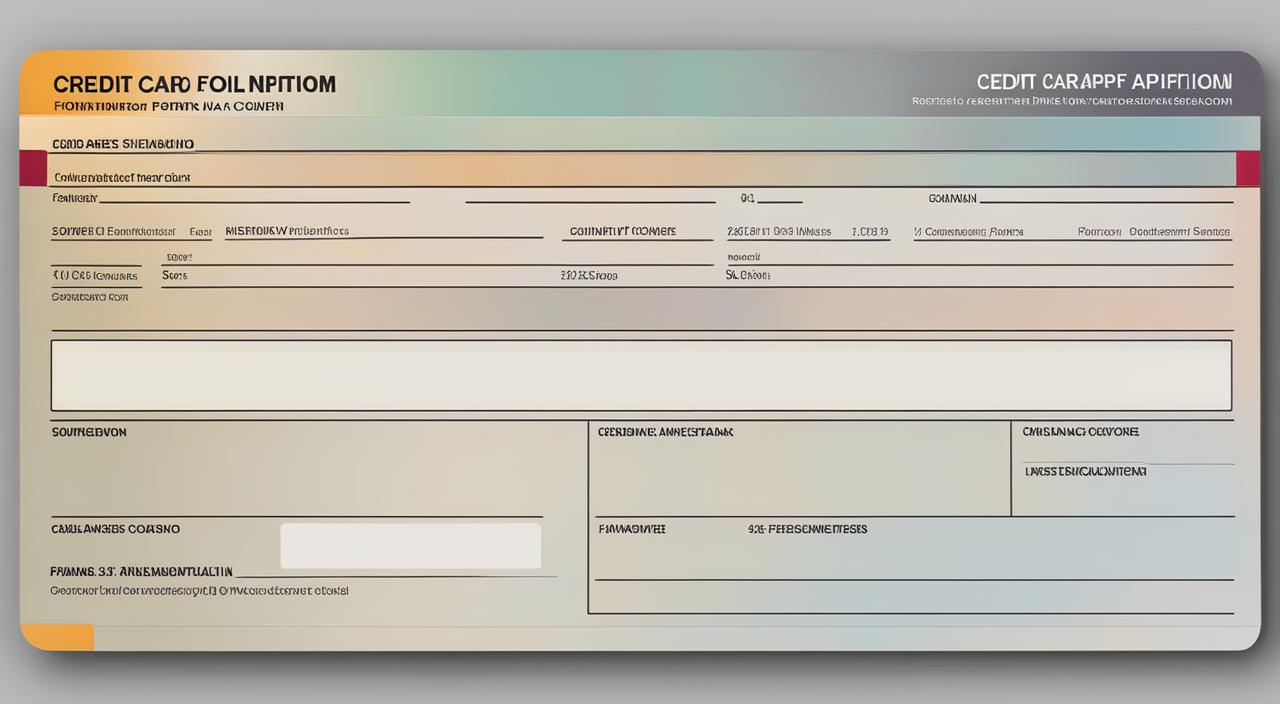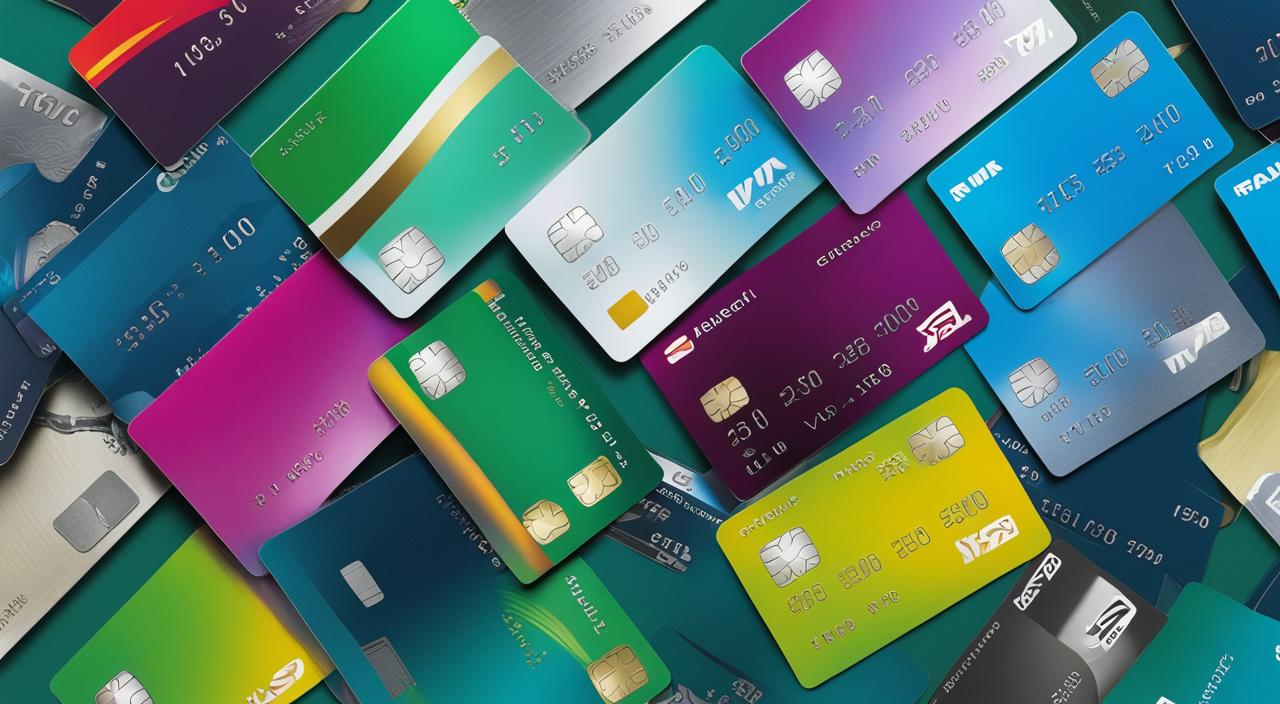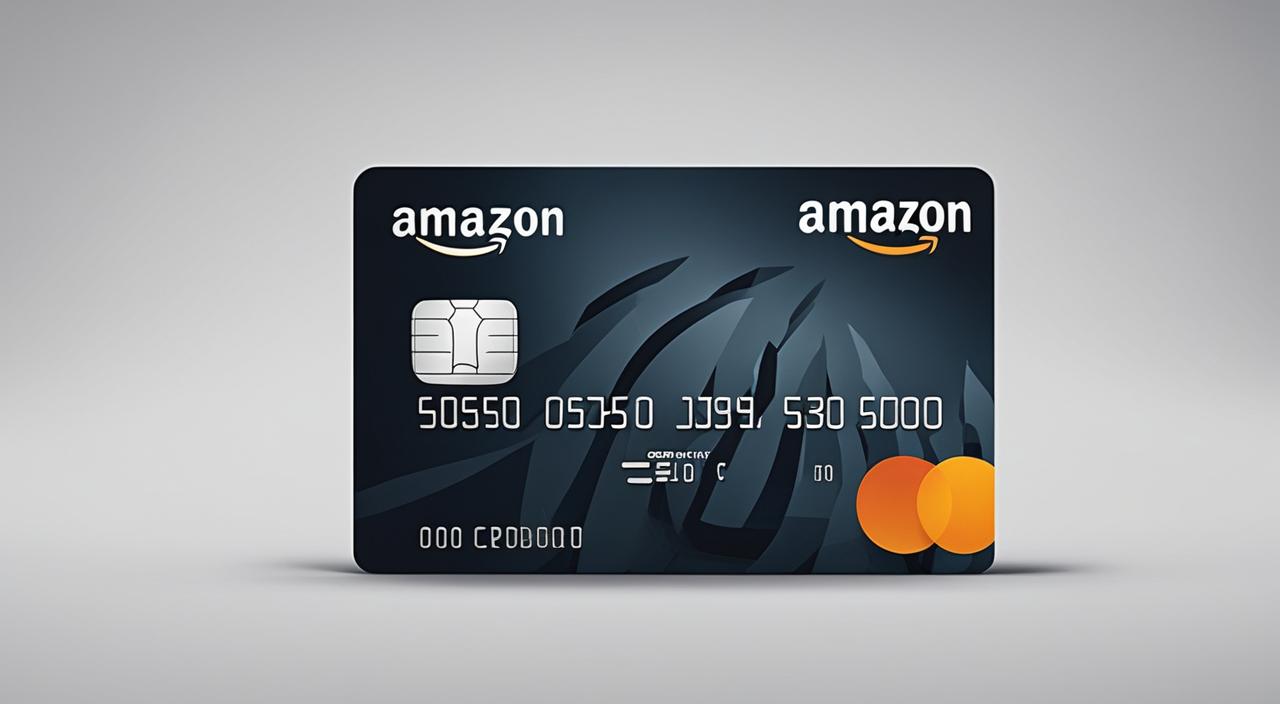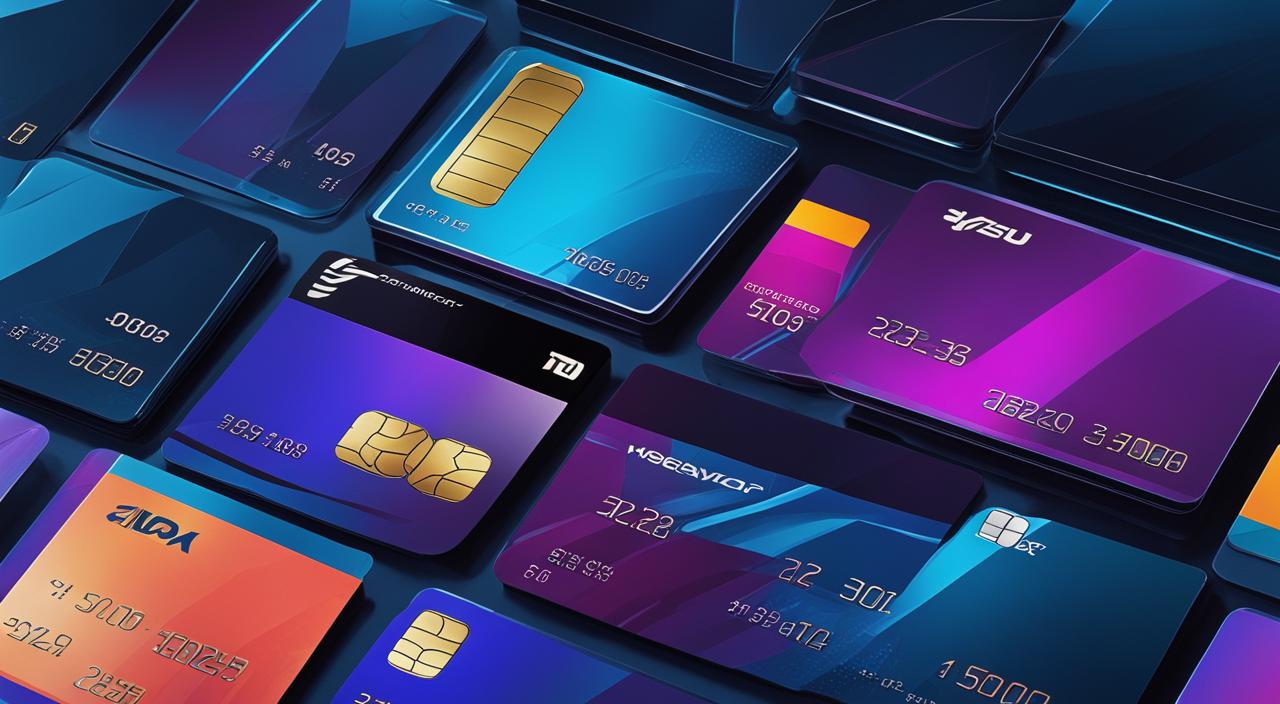Whether you’re looking to consolidate your debt, build credit, or earn rewards, applying for a credit card can seem daunting. From determining your eligibility to navigating the application process, there are several factors to consider to ensure a successful outcome.
In this section, we will guide you through the process of applying for a credit card. We will cover everything from the different types of applications available, to the specific steps you need to follow to fill out the necessary information correctly. Whether you’re applying for a credit card online or in-person, we’ve got you covered.
Key Takeaways:
- Understanding credit card eligibility is crucial before applying for a card.
- There are different ways to apply for a credit card, including online applications.
- Ensure a successful credit card application by meeting the requirements and maintaining a good credit score.
- Consider the pros and cons of instant credit card applications before opting for this method.
- Choosing the right credit card to suit your financial needs is essential.
Understanding Credit Card Eligibility
Before you apply for a credit card, it’s important to understand the eligibility requirements set by credit card issuers. Knowing what they’re looking for can help you assess your chances of getting approved for a credit card.
One of the most important factors credit card issuers consider is your credit score. Typically, a higher credit score indicates that you are less risky to lend to, increasing your chances of getting approved.
In addition to your credit score, credit card issuers may also look at your income and employment status to determine whether you can afford to make payments on the credit card. Some credit cards may require a minimum income level to be eligible.
Other factors that may impact your credit card eligibility include any existing debt, your payment history, and the number of credit applications you’ve made in the past few months.
Credit Score and Credit Card Eligibility
Your credit score is perhaps the most crucial factor in determining your credit card eligibility. Credit card issuers will typically require a minimum credit score to approve your application. The better your credit score, the more likely you are to get approved for a credit card.
| Credit Score Range | Credit Quality |
|---|---|
| 300-579 | Very Poor |
| 580-669 | Fair |
| 670-739 | Good |
| 740-799 | Very Good |
| 800-850 | Excellent |
If your credit score falls into the “very poor” or “fair” categories, you may want to consider improving your credit score before applying for a credit card.
Income and Employment Status
Your income and employment status are also crucial factors in determining your credit card eligibility. Credit card issuers want to ensure that you have a stable source of income and are able to make payments on the credit card.
Some credit cards may have minimum income requirements to be eligible for the card. Make sure you meet the income requirements before applying for the card.
Other Factors to Consider
Other factors that may impact your credit card eligibility include any existing debt, your payment history, and the number of credit applications you’ve made in the past few months.
Before applying for a credit card, it’s a good idea to check your credit report and ensure that all information is accurate. You can dispute any errors on your credit report and improve your credit score before applying for a credit card.
The Credit Card Application Process
Once you have determined your eligibility for a credit card, it’s time to move on to the application process. Whether you decide to apply for a credit card online or through a physical application form, it’s essential to understand the steps involved, so you ensure you provide all the required information accurately and efficiently.
Before starting the credit card application process, it’s important to gather the necessary documents. These may include your government-issued ID, proof of address, income details, and job information. Once you have all the required information, you can start the following steps:
- Choose the Right Card: Choose a credit card that aligns with your financial needs and goals. Take the time to research and compare card features, such as rewards, fees, and interest rates, so you find the best option.
- Fill Out the Application: Whether applying online or through a physical application form, ensure you have all your necessary details ready and fill out the form accurately and truthfully. An incomplete application may impact your chances of approval.
- Provide Additional Information: Some credit card issuers may ask for additional information after reviewing your application. Be prepared to provide more details if necessary.
- Submit Your Application: After completing the application, review it carefully, and ensure you have provided all the necessary information. If you’re applying online, you can submit the application electronically. If you’re applying through a physical application form, ensure you mail it to the right address.
Once you submit your credit card application, the credit card issuer will review your information and inform you of their decision. If your application is approved, you’ll receive your credit card shortly, while a decline means you may need to explore other options or consider improving your credit score before reapplying.

Tip: Ensure you read the terms and conditions carefully, so you understand the fees, interest rates, and other important details associated with your credit card before applying.
Tips for a Successful Credit Card Application
Applying for a credit card can be a daunting process, but with careful consideration and preparation, you can increase your chances of approval. Here are some practical tips to make your credit card application stand out:
- Check your credit score: One of the critical factors that lenders consider is your credit score. Make sure you know your score and take steps to improve it if necessary.
- Choose the right card for your needs: There are several types of credit cards available, from rewards cards to balance transfer cards. Select a card that aligns with your spending habits and financial goals.
- Gather the required documents: Depending on the credit card issuer, you may need to provide documents proving your income, employment, and identity. Be sure to have these prepared beforehand.
- Fill out the application accurately: Avoid making mistakes in your application form and provide complete information. Inaccurate or incomplete applications may lead to rejection.
- Be mindful of your credit utilization: Ideally, you should keep your credit utilization below 30% of your credit limit. High utilization may suggest that you’re reliant on credit and may make lenders hesitant to approve your application.
By following these tips, you can increase your chances of credit card approval. Remember to take the time to prepare and research before submitting your application.
Instant Credit Card Application: Pros and Cons
Instant credit card applications have become increasingly popular due to the convenience they offer. With just a few clicks or taps, you can apply for a credit card and receive a decision within minutes. This can be particularly advantageous if you need access to credit quickly.
Advantages of Instant Credit Card Applications
- Quick and easy: Applying for a credit card online is a straightforward process and can be completed quickly. You can do it from the comfort of your own home at any time, without the need to visit a bank or fill out lengthy paperwork.
- Instant decision: The main benefit of instant credit card applications is that you receive a decision quickly. This means you can find out if you’ve been approved or rejected within minutes of submitting your application.
- Bonus rewards: Some credit card issuers offer bonus rewards for instant applications. For instance, you may receive extra points or cashback if you’re approved immediately.
Disadvantages of Instant Credit Card Applications
- Higher fees and interest rates: Some instant credit card offers come with higher fees and interest rates compared to traditional credit cards. It’s essential to read the fine print to understand the terms and conditions before hitting ‘apply.’
- Limited options: Not all credit card issuers offer instant credit card applications. This means your options may be limited in terms of the type of credit card you can apply for.
- Potential for errors: The speed of instant credit card applications means it’s easy to make mistakes when filling out the form. This can lead to errors or inaccuracies, which may impact your chances of approval.
Before applying for an instant credit card, it’s essential to weigh the pros and cons carefully. While the convenience and speed may be appealing, it’s crucial to understand the potential drawbacks and ensure you make an informed decision.
Conclusion
Applying for a credit card can seem overwhelming, but by following the steps outlined in this guide, you’ll be well on your way to a successful application. Remember to take the time to understand your credit card eligibility, gather all necessary information and documents, and fill out the application accurately and completely.
Keep in mind that approval is not guaranteed, but by maintaining a good credit score and taking advantage of resources like credit monitoring services and pre-qualification tools, you can increase your chances of success.
Finally, when considering an instant credit card application, be sure to weigh the convenience against the potential drawbacks and carefully consider whether it’s the best option for your financial situation.
Overall, with a little preparation and attention to detail, you can apply for a credit card with confidence and find a card that meets your needs and helps you achieve your financial goals.
FAQ
How do I apply for a credit card?
To apply for a credit card, you can either do it online or through a physical application form. For online applications, visit the credit card issuer’s website and fill out the necessary details. If you prefer a physical application form, you can obtain one from the credit card issuer’s branch or request it to be mailed to you. Complete the form with accurate information and submit it by mail or in-person.
What information do I need to provide when applying for a credit card?
When applying for a credit card, you typically need to provide personal details such as your full name, address, date of birth, social security number, employment information, and income details. You may also be asked to provide information about your existing financial obligations, such as other credit cards or loans.
How long does it take to get approved for a credit card?
The time it takes for a credit card application to be approved can vary depending on the credit card issuer and the complexity of your application. In some cases, you may receive an instant approval decision online. However, for certain applications that need further review, it may take a few days or even weeks to receive a final decision. It’s important to be patient and regularly check the status of your application.
What factors determine credit card eligibility?
Credit card eligibility is determined by various factors, including your credit score, income, employment history, and existing financial obligations. Credit card issuers have their own specific criteria, so it’s important to review their eligibility requirements before applying. Having a good credit score, a stable income, and a low debt-to-income ratio can increase your chances of being approved.
Can I apply for a credit card if I have bad credit?
It may be more challenging to get approved for a credit card with bad credit, but there are options available. Some credit card issuers offer secured credit cards, which require a security deposit that serves as collateral for the credit limit. Secured credit cards can help you rebuild your credit score over time. Additionally, there are credit cards designed for people with limited or no credit history, which may have higher interest rates or fees.
What should I do if my credit card application is denied?
If your credit card application is denied, it’s important to review the denial letter or notification provided by the credit card issuer. This will usually provide the reason for the denial. Common reasons include a low credit score, insufficient income, or negative factors on your credit report. Take steps to address the specific reason for the denial, such as improving your credit score or reducing your existing debt, before applying for another credit card.



